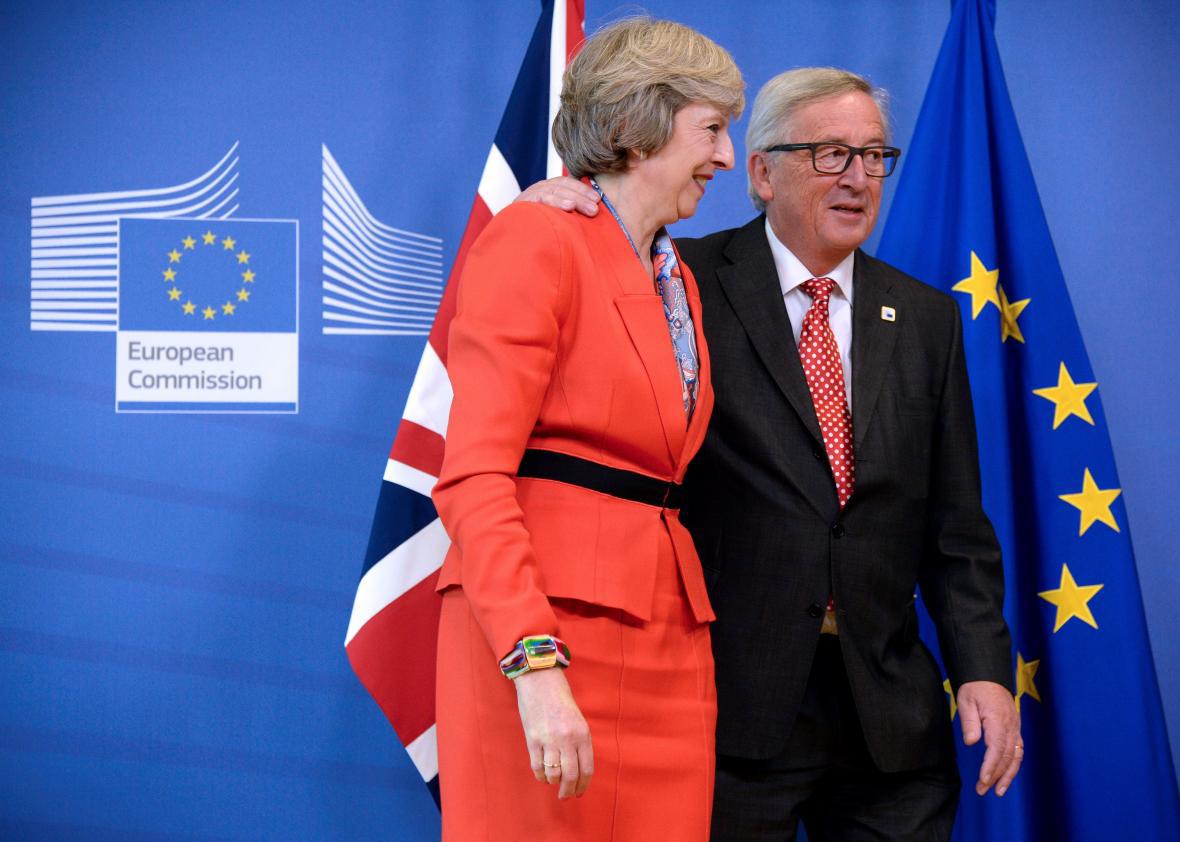EU leaders, right now, can probably relate to the unnamed subject of Drake’s “Hotline Bling,” whose ex has left the city but still thinks he’s owed regular phone calls and feels the need to share his opinions about how she dresses and who she hangs out with.
In a speech at an EU summit in Brussels on Thursday, Prime Minister Theresa May told fellow European leaders that “The UK is leaving the EU, but we will continue to play a full role until we leave and we will be a strong and dependable partner after we have left.” Toward that end, she emphasized that she expects Britain to be part of the EU decision-making process on issues such as sanctions on Russia and migration controls.
The statement comes a couple of weeks after European Council President Donald Tusk convened an “informal” summit of 27 EU leaders, without May, in Bratislava, Slovakia—the first meeting of its kind without Britain in 43 years. Maybe that hang without her made May have second thoughts about the whole breakup thing.
On the issue of Russia, in particular, Britain’s eventual departure from the EU removes a strong voice in favor of tough sanctions. It also removes a strong opponent of forming a more unified common defense policy. This could all play out in a number of ways, and EU-27 leaders are probably anxious to start trying to figure out what a post-British foreign and economic policy for the union looks like, but having their surly ex still hanging around demanding a role is going to make that trickier.
By all accounts, May got a chilly reception at the meeting in Brussels. Jean-Claude Juncker, president of the European commission, just shrugged when asked by reporters how talks with her were going.
May gave a speech earlier this month to her conservative party, making clear that she would emphasize immigration controls over maintaining access to the European market in the Brexit negotiations, likely to formally begin by the end March. Since European leaders have made it clear that Britain can’t expect access to European markets without the freedom of movement that goes along with it, this makes it much more likely that Britain is headed for a “hard Brexit”: complete withdrawal from both the union and the common market with hard immigration controls.
While some EU officials suggest a compromise arrangement might still be possible, senior EU leaders like Tusk seem to be running out of patience. He said this week that the only alternative to a hard Brexit would be “no Brexit.” German Chancellor Angela Merkel and French President François Hollande also re-emphasized this week that they plan to take a hard line in negotiations with Britain, rather than allowing it have what’s been called a “bespoke” arrangement with Europe. They’re also unlikely to take kindly to Britain’s suggestion that it should still have a full role in EU decision-making on its way out the door.
Brexit proponents have made the case that the country doesn’t have enough of a voice in Brussels on issues that impact the British public. For the next two years, Brexit could turn that into a self-fulfilling prophecy.
